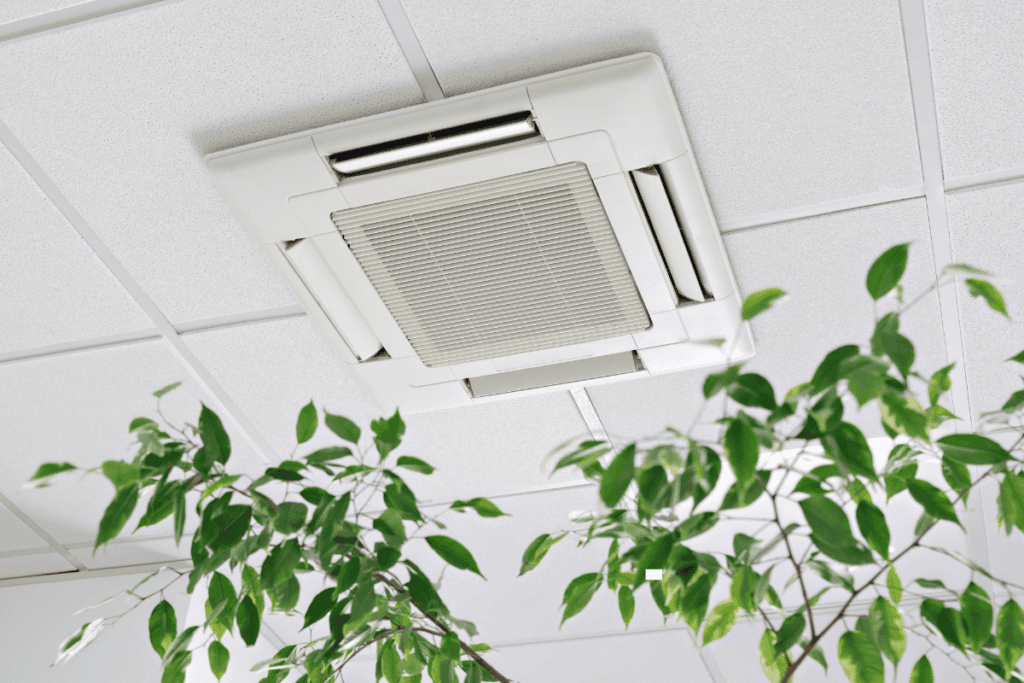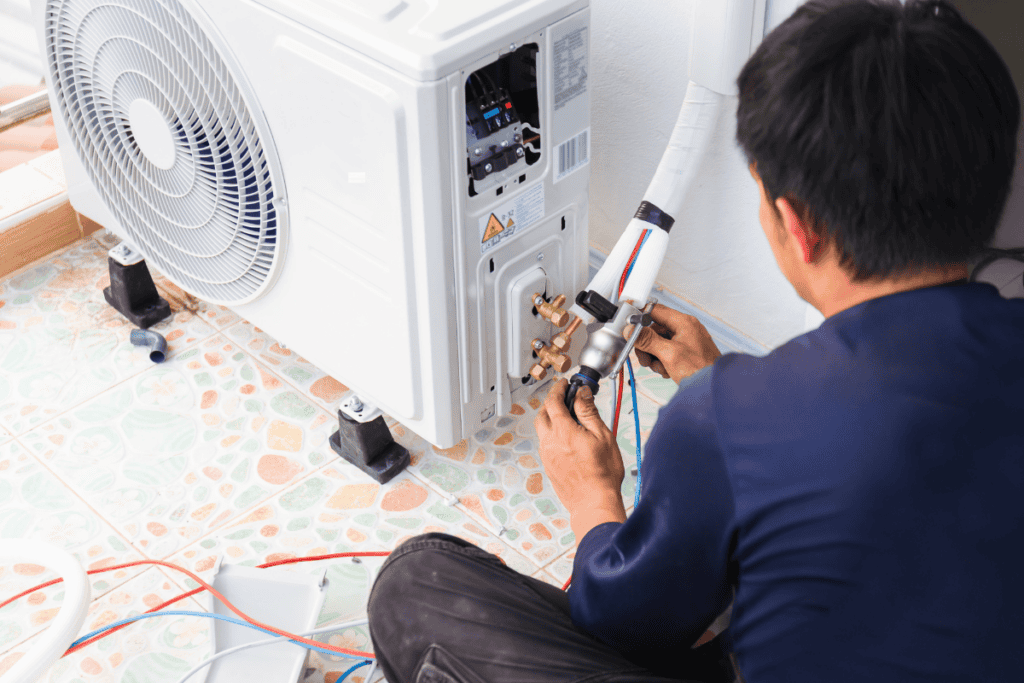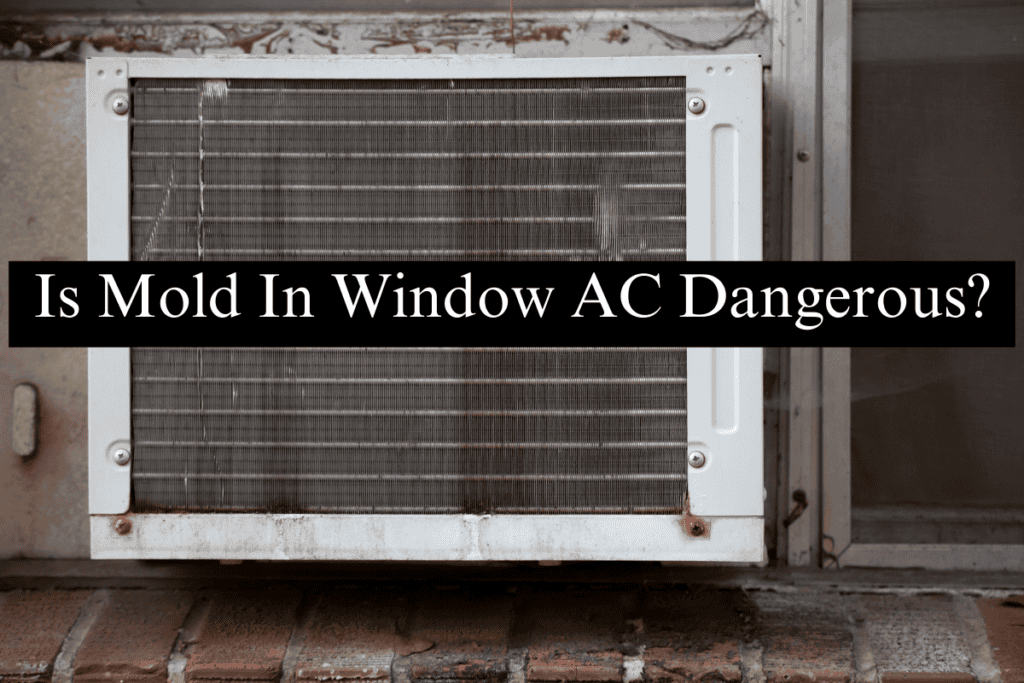Is your central air conditioner running but not cooling your home? It can be frustrating when your AC unit fails to provide the cool, comfortable air you expect, especially during the hot summer months. Before you call for ac repair, it’s essential to understand that most central ac systems are designed to last for about 15-20 years before the compressor wears out, according to the U.S. Department of Energy.
To troubleshoot your air conditioner, ask yourself two key questions: “How long have I been facing this issue?” and “How hot is it outside?” These factors can help determine whether the issue is a simple fix or requires professional hvac assistance.
Many homeowners don’t realize that air conditioners are meant to be “fine-tuned” for your specific location. Factors such as the size of your home, insulation, and local climate all play a role in how effectively your ac unit can cool your space. If your air conditioner is not cooling properly, it could be due to various issues, such as a dirty air filter, low refrigerant levels, or a malfunctioning thermostat.
In this article, we’ll explore common reasons why your air conditioner may be running but not cooling, and provide step-by-step guidance on how to diagnose and resolve these issues. By understanding the key components of your system and performing simple maintenance tasks, you can help ensure that your air conditioner delivers the cool, comfortable indoor air you need to beat the summer heat.
Contents
- 1 1. Issue With Thermostat
- 2 2. Dirty Filter
- 3 3. Dirty Condenser Unit
- 4 4. Frozen Evaporator Coil
- 5 5. Compressor Problems
- 6 6. Your HVAC System Needs to be Changed
- 7 7. Take A Look At Your Circuit Breaker
- 8 Tips To Maintain The Cooling of Central AC
- 9 When To Seek Professional Assistance?
- 10 Frequently Asked Questions (FAQs)
1. Issue With Thermostat
Your thermostat is the control center of your air conditioning system, and if it’s not functioning properly, your AC unit may not make your home cool effectively.
Common thermostat issues include incorrect settings, dead batteries, or a malfunctioning thermostat itself. If your thermostat is set to “fan” instead of “cool,” your air conditioner will blow air but not produce cold air.
Additionally, if your thermostat batteries are low or dead, it may not communicate properly with your AC unit, leading to inconsistent cooling or a complete lack of cool air.
Solution
To troubleshoot thermostat issues, first ensure that your thermostat is set to “cool” and not “fan.” If the thermostat is battery-powered, replace the batteries with fresh ones to ensure proper operation.
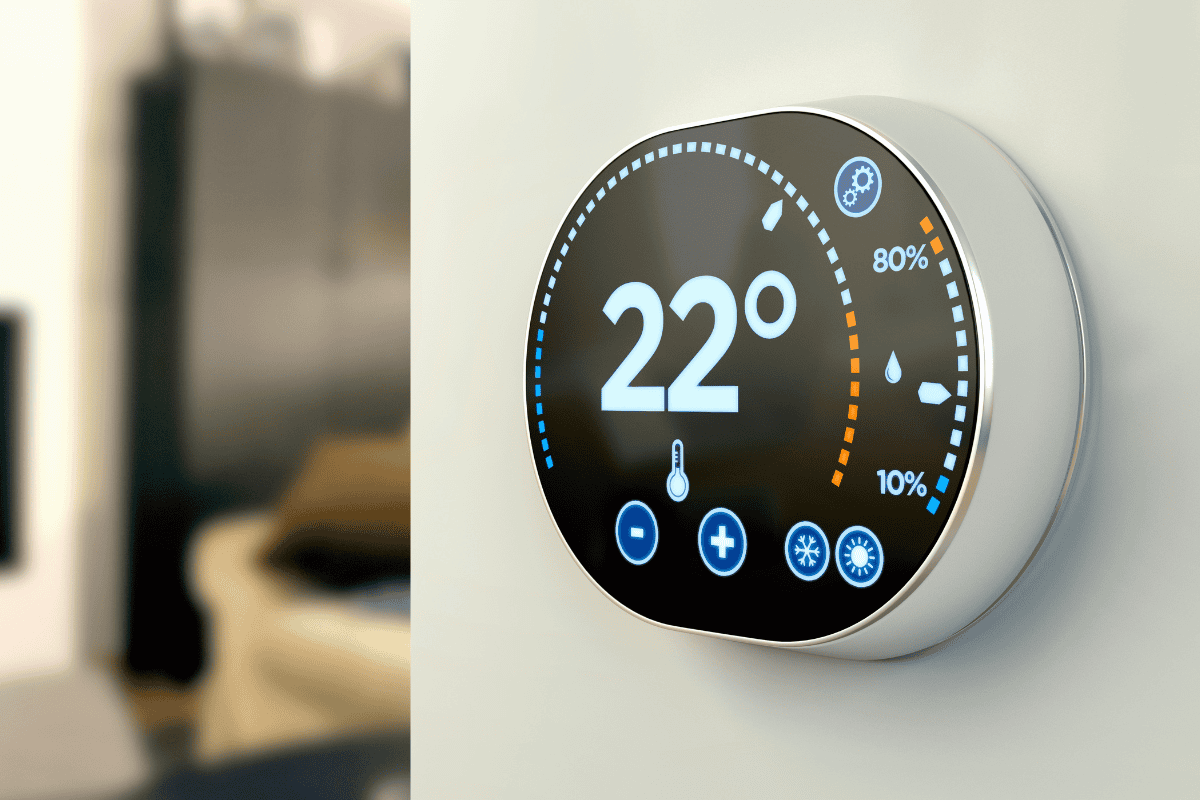
Consider upgrading to a smart thermostat, which can save 10-15 percent of energy needs while improving comfort and convenience, according to Project Drawdown.
Smart thermostats can learn your preferences and automatically adjust your AC system’s settings to optimize energy efficiency and maintain a consistent temperature in your home.
They also allow you to control your air conditioner remotely using your smartphone or other devices, providing greater flexibility and control over your home’s cooling.
2. Dirty Filter
A dirty air filter is one of the most common reasons for an air conditioner not cooling properly. The air filter’s purpose is to trap dust, dirt, and other particles, preventing them from entering your AC system and potentially causing damage.
However, when the filter becomes excessively dirty or clogged, it restricts airflow, making it difficult for your air conditioner to circulate cool air effectively.
Solution
To resolve this issue, start by checking your air conditioner’s filter and replacing it if it appears dirty or hasn’t been changed in the last 90 days.
According to the U.S. Department of Energy, replacing a dirty, clogged filter with a clean one can lower your air conditioner’s energy consumption by 5% to 15%.
When selecting a new filter, make sure to choose one that is compatible with your AC unit and meets your home’s specific needs. Consider factors such as filter size, MERV rating, and material to ensure you’re using the most appropriate filter for your air conditioning system.
3. Dirty Condenser Unit
The condenser unit, located in the outdoor portion of your air conditioning system, plays a crucial role in releasing the heat absorbed from your home’s atmosphere. If the condenser unit becomes dirty or covered in debris, it can hinder your AC’s ability to cool down your home effectively.
One common issue with the condenser unit is the accumulation of dirt, leaves, and other debris on the fins.
These fins are responsible for efficiently transferring heat from the refrigerant to the outside air. When the fins become clogged, the heat transfer process is impeded, causing your air conditioner to work harder and consume more energy.
Another potential problem with the condenser unit is issues with the fan itself. The condenser fan is responsible for drawing air across the condenser coils and expelling the heat outside.
If the fan experiences problems like a blown capacitor, motor issues, or a bent blade, it can reduce airflow and affect your AC system’s cooling process.
Solution
To address a dirty condenser unit and restore your AC’s capability of cooling your house, follow these steps:
1. Turn off power to your air conditioner: Before cleaning the condenser unit, ensure that you have turned off the power to your AC system at the circuit breaker to prevent any electrical hazards.
2. Clean the condenser fins: Use a soft brush or a fin comb to gently remove any debris lodged between the fins. Be careful not to bend or damage the delicate fins, as this can further impair your AC’s performance.
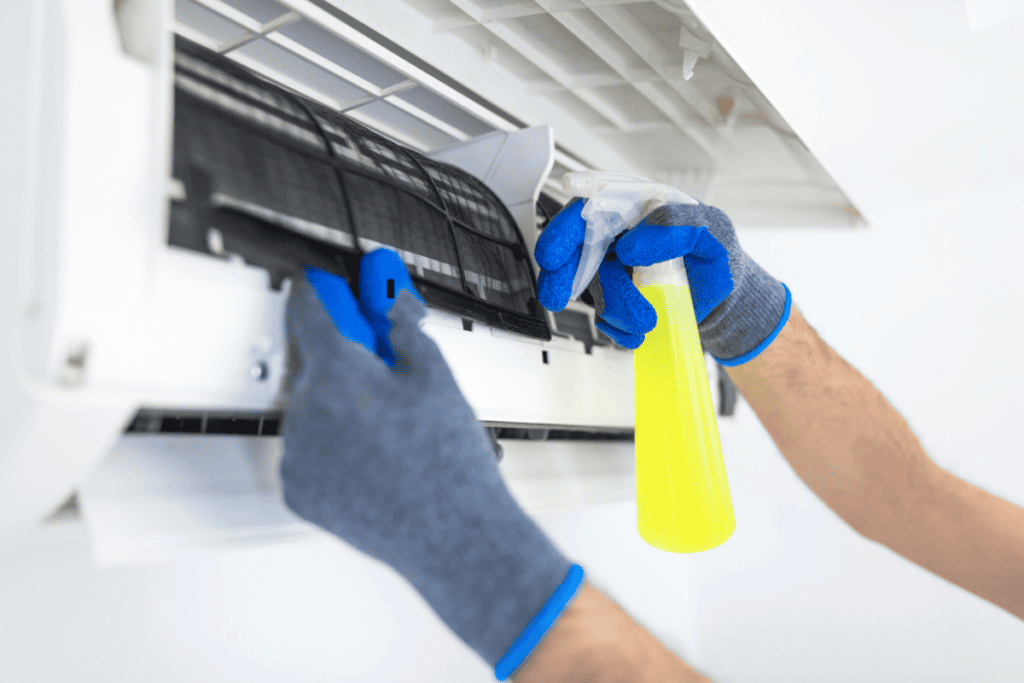
3. Check the condenser fan: Inspect the fan blades for any signs of damage or bending. If the blades are bent, carefully straighten them to ensure proper airflow. If the fan is not spinning freely or making unusual noises, it may indicate a problem with the capacitor or motor.
4. Maintain a clear area around the condenser unit: Trim any vegetation and remove any objects within a 2-3 foot radius of the outdoor unit to ensure adequate airflow and prevent debris from accumulating on the condenser fins.
4. Frozen Evaporator Coil
The evaporator coil, located in the indoor unit of your AC system, plays a vital role in lowering the temperature of your home by absorbing heat from the indoor air.
When it becomes frozen, it can prevent your air conditioner from working efficiently, leading to a lack of cold air and potential damage to your system.
Several factors can contribute to a frozen evaporator coil, including:
1. Low refrigerant levels: When your system is low on refrigerant due to a leak or improper charging, it can cause the coil to become too cold and freeze up.
2. Dirty air filter: A clogged air filter restricts airflow over the evaporator coil, causing it to become too cold and freeze.
3. Blocked air vents: If your home’s air vents are closed or obstructed, it can reduce airflow and cause the condenser coil to freeze.
4. Faulty thermostat: If your thermostat is not accurately measuring the temperature or signaling your system correctly, it can lead to a frozen coil.
Solution
If you suspect your air conditioner’s evaporator coil is frozen, follow these steps to defrost it and restore proper cooling:
1. Turn off your system: Shut off your air conditioner at the thermostat and the circuit breaker.
2. Check the air filter: Inspect your AC’s air filter and replace it if it appears dirty or clogged. A clean filter will help ensure proper airflow and prevent future freezing issues.
3. Open air vents: Ensure all air vents in your home are open and unobstructed to allow for adequate airflow over the evaporator coil.
4. Wait for the coil to defrost: Allow the coil to thaw completely, which may take several hours. You can speed up the process by setting your thermostat to “fan only” mode, which will blow warm air over the coil.
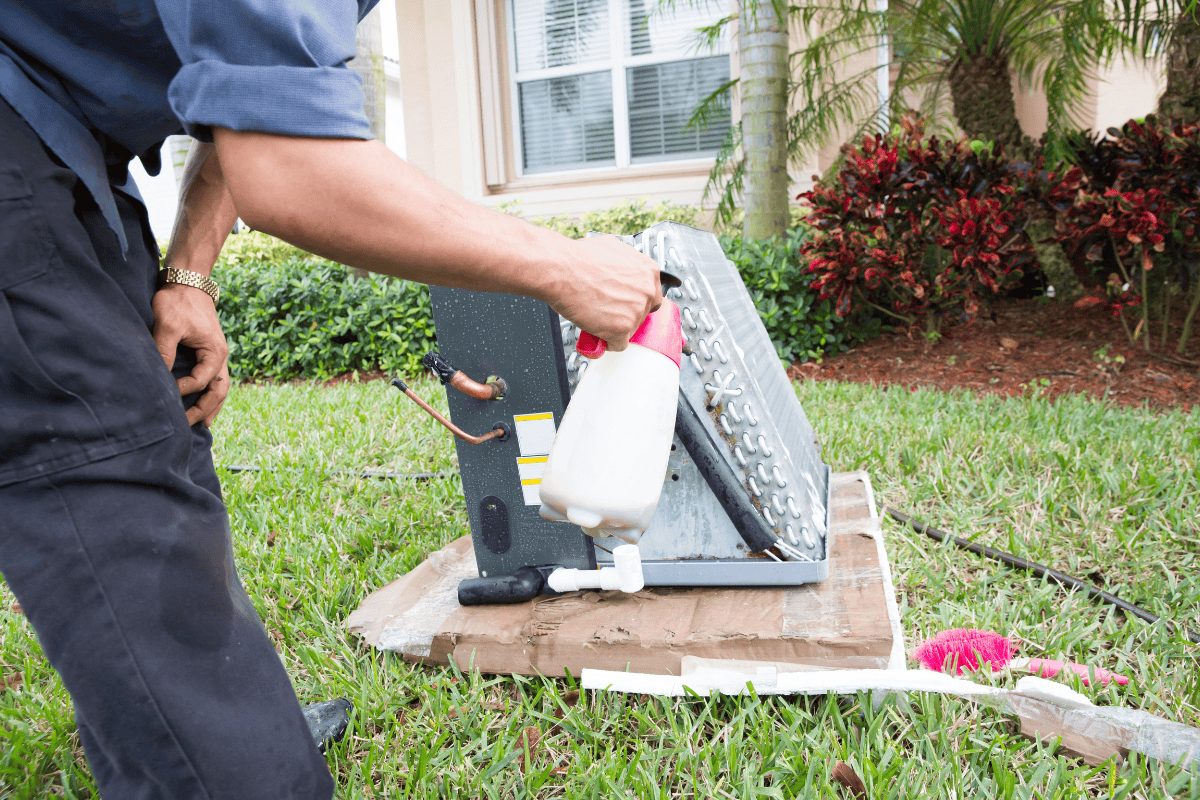
5. Check for refrigerant leaks: If the coil freezes again after defrosting, it may indicate a refrigerant leak. Contact an HVAC professional to inspect your system, repair any leaks, and recharge the refrigerant to the proper levels.
6. Monitor your system: Once the coil has defrosted and you’ve addressed any underlying issues, turn your air conditioner back on and monitor its performance.
5. Compressor Problems
The compressor is the heart of your air conditioning system, responsible for compressing and circulating refrigerant throughout the AC unit. A malfunctioning compressor can lead to a range of issues, including a lack of cool air, strange noises, and increased energy consumption.
While a compressor typically lasts about a decade, its lifespan can be significantly shortened if it is not well-maintained.
Several factors can contribute to compressor malfunction, such as:
1. Lack of lubrication: The compressor relies on oil to lubricate its moving parts and prevent friction. If the oil level is low or the oil becomes contaminated, it can cause the compressor to overheat and fail prematurely.
2. Using refrigerant in liquid state: If liquid refrigerant enters the compressor, it can cause severe damage and lead to compressor failure. This issue is often caused by an overcharged system or a malfunctioning expansion valve.
3. Electrical issues: Compressor problems can also stem from electrical issues, such as a blown fuse, damaged wiring, or a faulty capacitor. These issues can prevent the compressor from starting or cause it to overheat.
Tips on keeping the compressor healthy
1. Keeping it clean: Regular cleaning of the outdoor unit, including the compressor, can help prevent the accumulation of dirt, dust, and debris, which can hinder the compressor’s performance and cause it to overheat.
2. Creating protective shade: Shading the outdoor unit from direct sunlight can help the AC compressor cool off before restarting, reducing strain on the system and extending its lifespan.
3. Monitor refrigerant levels: Ensuring that your AC unit has the proper amount of refrigerant is crucial for compressor health. Both overcharging and undercharging the system can lead to compressor damage, so it’s essential to have a professional HVAC technician check and adjust refrigerant levels as needed.
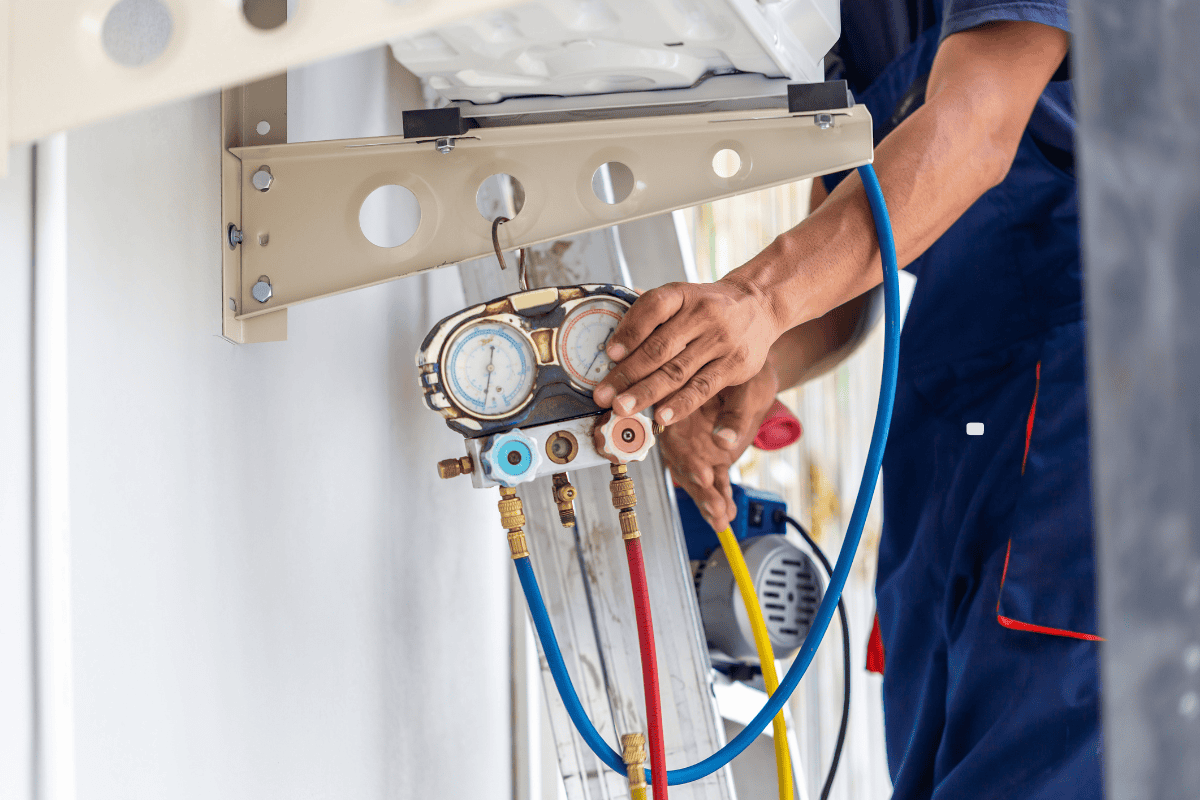
4. Invest in a surge protector: Installing a surge protector can safeguard your cooling system against sudden power spikes, which can damage the compressor and other electrical components. This simple investment can help extend the life of your AC unit and prevent costly repairs.
6. Your HVAC System Needs to be Changed
If your air conditioner is no longer effectively cooling your home despite regular maintenance and repairs, it may be time to consider replacing your HVAC system.
The average life of an AC unit is typically between 8 to 14 years, during which you will require air conditioner maintenance from time to time.
However, if you live in a hot and humid place like Pennsylvania, your system can wear out even quicker.
Some signs that indicate it’s time to replace your system include:
1. Frequent repairs: If you find yourself calling for AC repairs more often than usual, it may be more cost-effective in the long run to invest in a new system.
2. High energy bills: As your HVAC system ages, it becomes less efficient, leading to higher energy consumption and increased utility bills. If you notice a significant increase in your cooling costs, it may be time for an upgrade.
3. Uneven cooling: If some rooms in your home are too warm while others are too cold, it could be a sign that your air conditioner is struggling to distribute cool air evenly, indicating a need for replacement.
4. Strange noises: Unusual sounds coming from your AC unit, such as grinding, rattling, or squealing, can be a sign of serious issues that may warrant a system replacement.
Solution
When shopping for a new system, it’s essential to consider factors such as energy efficiency, environmental friendliness, and compatibility with your home’s specific needs.
One important aspect to look for is the SEER (Seasonal Energy Efficiency Ratio) rating. A higher SEER rating indicates better energy efficiency, which can lead to lower utility bills and reduced environmental impact.
It’s recommended by U.S. Energy Information Administration to choose a 14 SEER system for Northern U.S. and 15 SEER system for Southern U.S. These systems are more energy-efficient and environmentally friendly compared to older models, helping you save money on cooling costs while reducing your carbon footprint.
While replacing your system may seem like a significant investment, it can ultimately lead to improved comfort, lower energy bills, and a more reliable cooling experience for your home.
7. Take A Look At Your Circuit Breaker
If your air conditioner suddenly stops working, one of the first things to check is your home’s circuit breaker box. A tripped breaker can cut off power to your unit, preventing it from doing its work. It’s important to note that your central AC system usually requires two separate breaker switches – one for the indoor unit and another for the outdoor unit.
A breaker can trip due to various reasons, such as:
1. Overloaded circuit: If too many appliances are running on the same circuit as your air conditioner, it can cause the breaker to trip.
2. Electrical shorts: Loose or damaged wiring within your system can cause electrical shorts, which can trip the breaker.
3. Faulty components: If a component within your air conditioner, such as the compressor or fan motor, is malfunctioning, it can draw excessive current and cause the breaker to trip.
Solution
If you suspect a tripped breaker is the reason behind your AC not cooling, follow these steps to resolve the issue:
1. Locate your circuit breaker box: Find the main electrical panel in your home, which is usually located in the basement, garage, or utility room.
2. Identify the tripped breaker: Look for a breaker that is in the “Off” position or in a different position than the rest of the breakers. It may also have a red or orange indicator.
3. Reset the breaker: To reset the tripped breaker, first, move it to the “Off” position, and then firmly switch it back to the “On” position. You should hear a clicking sound, indicating that the breaker has been reset.
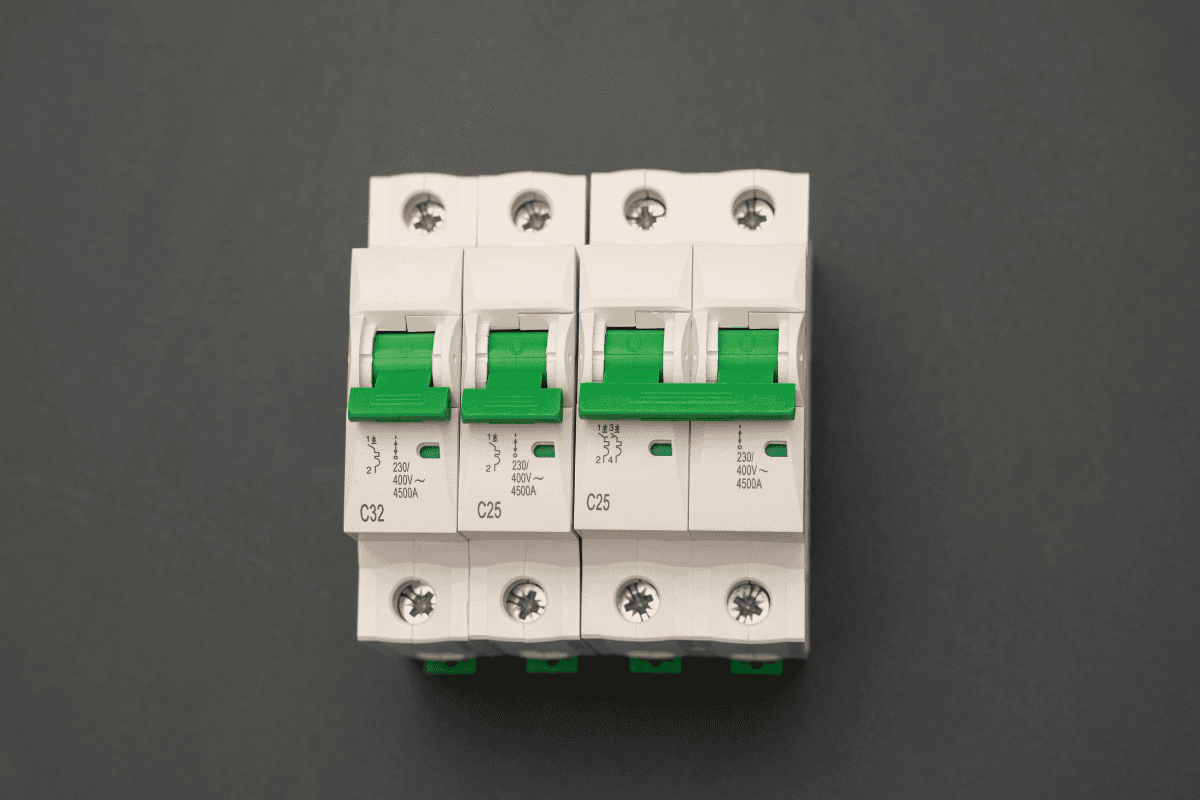
4. Test your air conditioner: After resetting the breaker, wait a few minutes and then turn on your system. If it starts cooling normally, the issue has been resolved.
5. Monitor for repeated tripping: If the breaker trips again shortly after resetting it, there may be a more serious issue with your air conditioner or electrical system.
Tips To Maintain The Cooling of Central AC
1. Clean Your AC Coils
Dirty coils reduce efficiency and cause your AC to work harder. Clean the evaporator and condenser coils regularly for optimal performance.
2. Clean or Replace the Filters
Clogged filters restrict airflow and decrease indoor air quality. Replace or clean your air filters every 1-3 months, depending on usage.
3. Insulate Ductwork
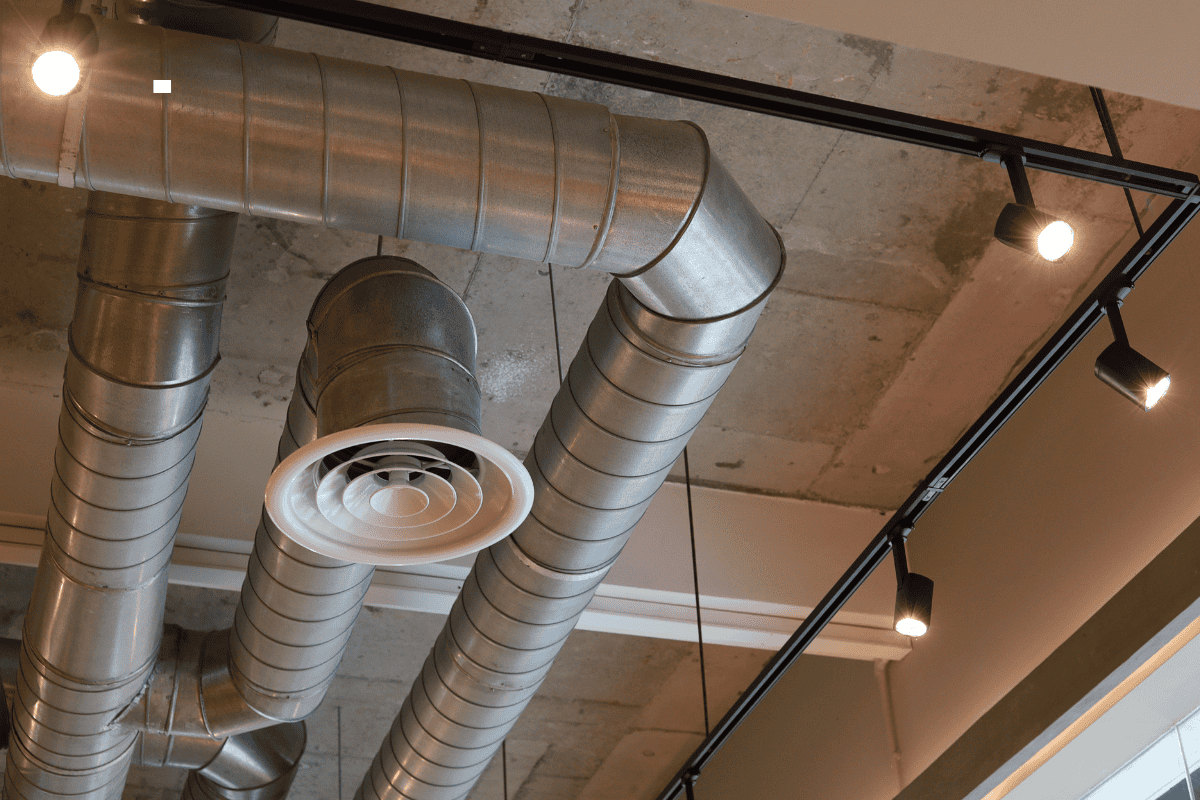
Poorly insulated air ducts are one of the common reasons why an air conditioner doesn’t work well as it can lead to energy losses and reduced cooling efficiency. Use duct-sealing tape to repair any gaps before adding a layer of insulation.
4. Keep Air Moving
Ensure proper airflow around your outdoor unit. Cut back vegetation to leave at least 2 feet of clearance around it for the AC unit to work properly, as recommended by the U.S. Department of Energy.
5. Schedule Professional Maintenance
Have an HVAC professional inspect your central air conditioning unit at least once a year. Regular maintenance helps identify and resolve issues before they lead to costly repairs or system failures.
When To Seek Professional Assistance?
At HVAC Angel, we understand that troubleshooting your air conditioner can be overwhelming. If you’ve tried the solutions mentioned above and your AC still isn’t cooling your home effectively, it’s time to seek professional assistance. Our experienced HVAC technicians have the knowledge and tools to diagnose and resolve complex heating and cooling issues quickly and efficiently.
We strongly recommend contacting us if you encounter problems such as refrigerant leaks, compressor failures, or electrical issues, as these require specialized expertise. Trust our team to provide the professional support you need to restore your AC’s performance and ensure a cool, comfortable home.
Frequently Asked Questions (FAQs)
1.What Are The Symptoms Of A Bad AC Compressor?
Strange noises, reduced cooling, and warm air from the unit are signs of a failing compressor. Contact an HVAC professional for diagnosis and repair.
2. Does Central AC Use More Electricity?
Central ACs generally use more electricity than smaller units, but efficiency depends on factors like SEER rating, maintenance, and proper sizing.
3. Is Centralized AC Better Than Split AC?
The choice depends on your needs. Centralized ACs are better for whole-home cooling, while split ACs offer targeted cooling and flexibility for individual rooms.

